The document describes various string functions in Java including:
1. Methods to manipulate and modify strings such as concat(), trim(), toUpperCase(), and replace().
2. Methods to get information about strings like length(), isEmpty(), charAt(), and indexOf().
3. Additional utility methods such as split(), toCharArray(), compareTo(), and contains() for further string analysis and processing.
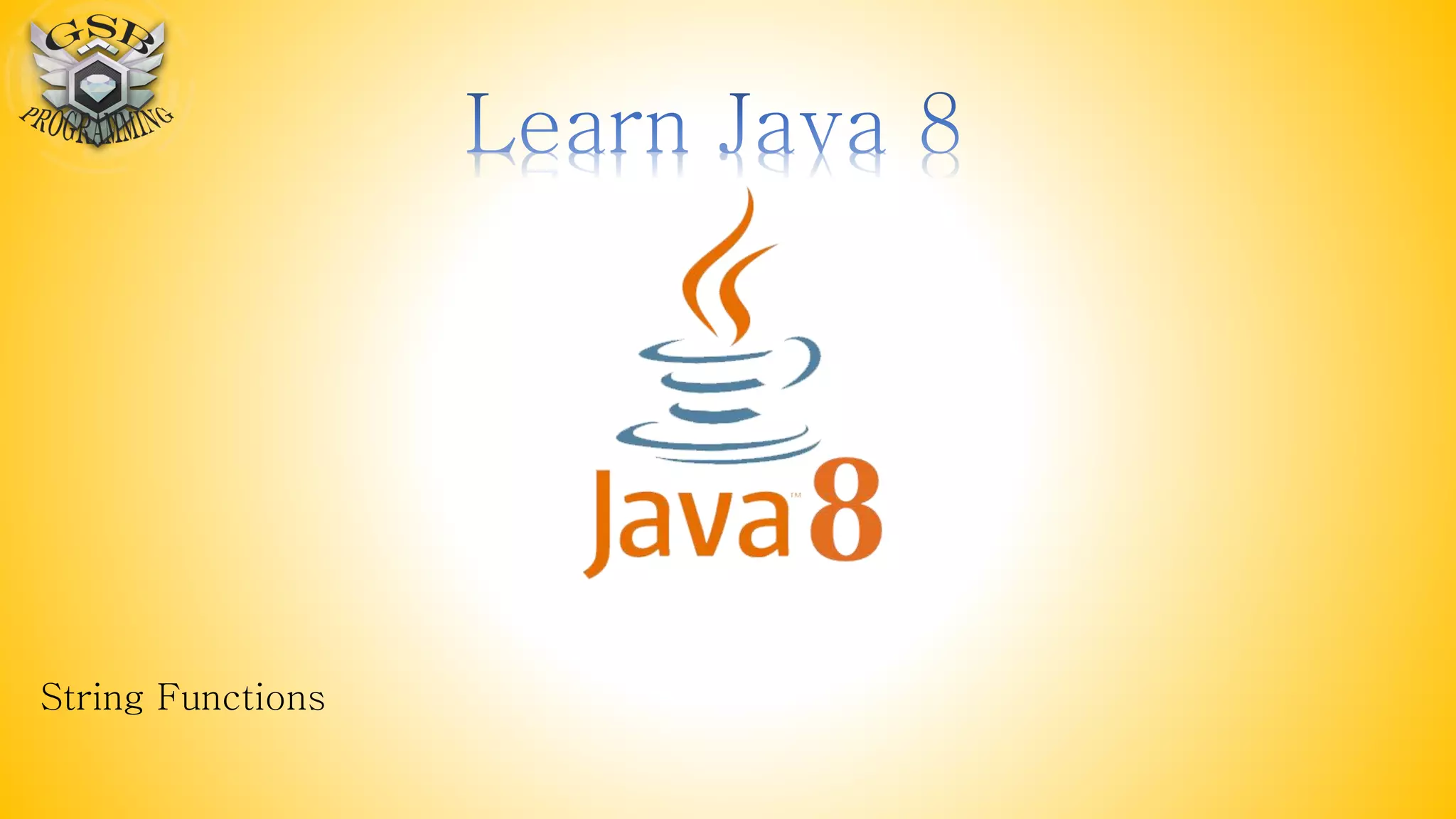
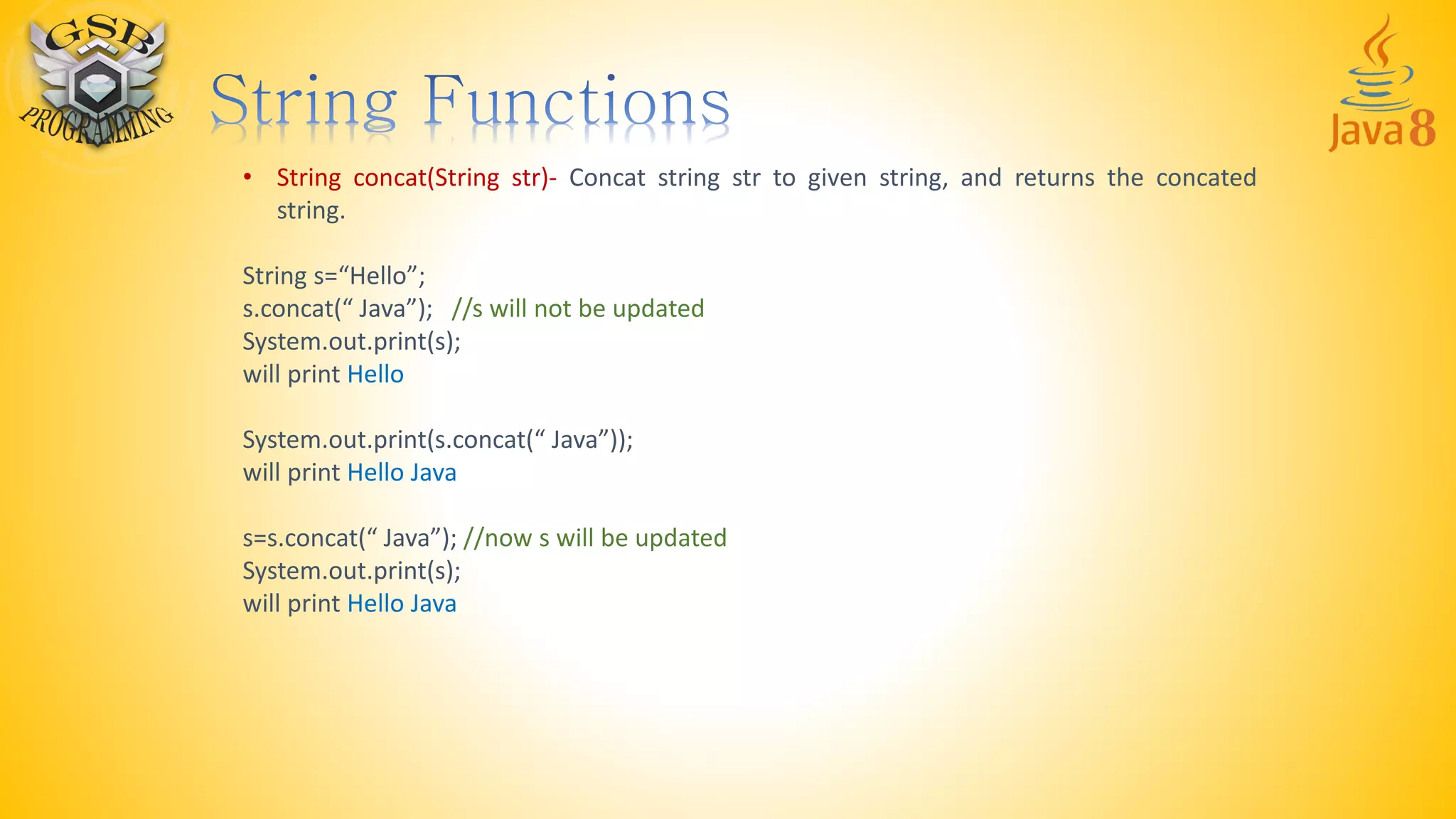
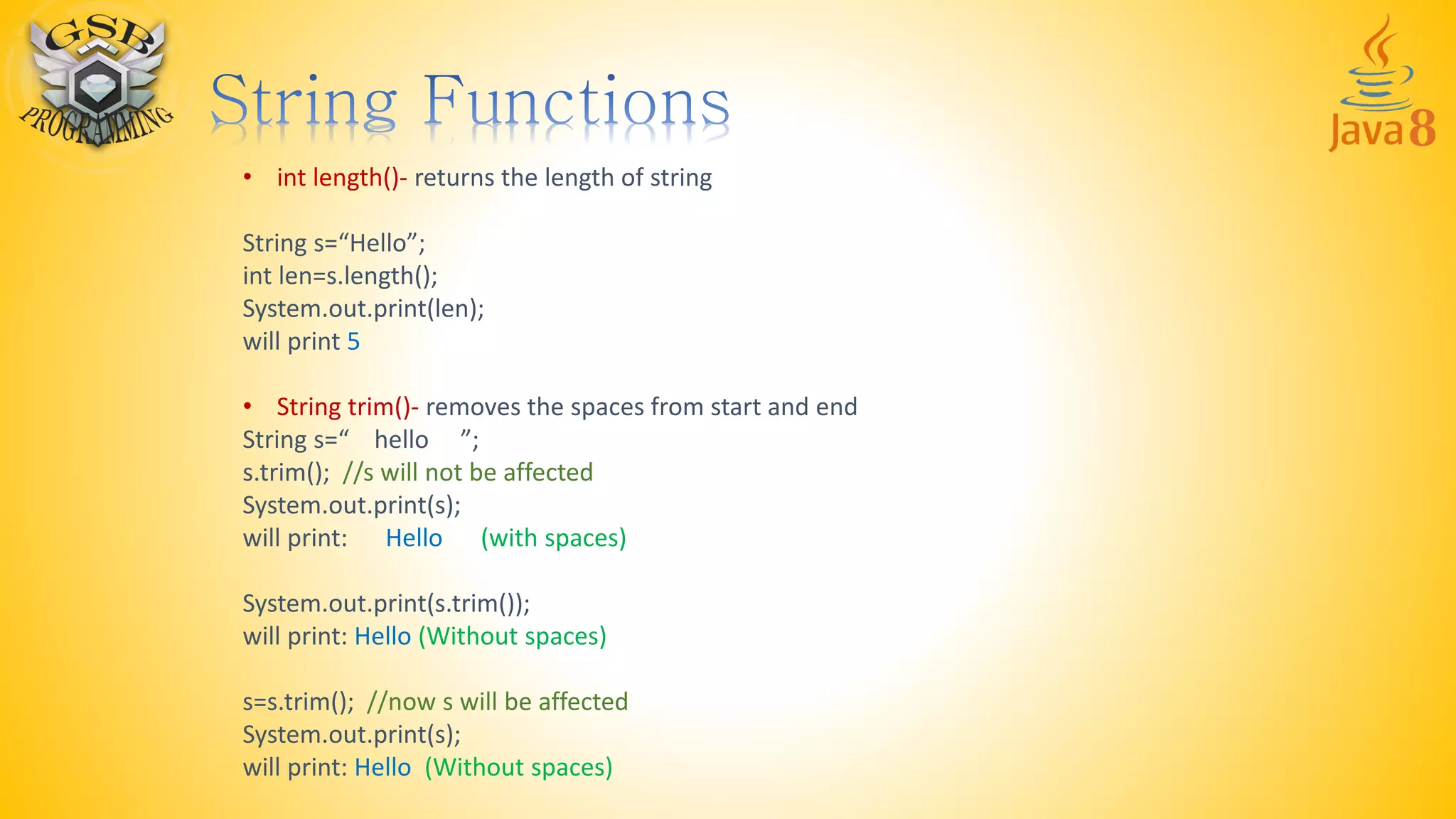
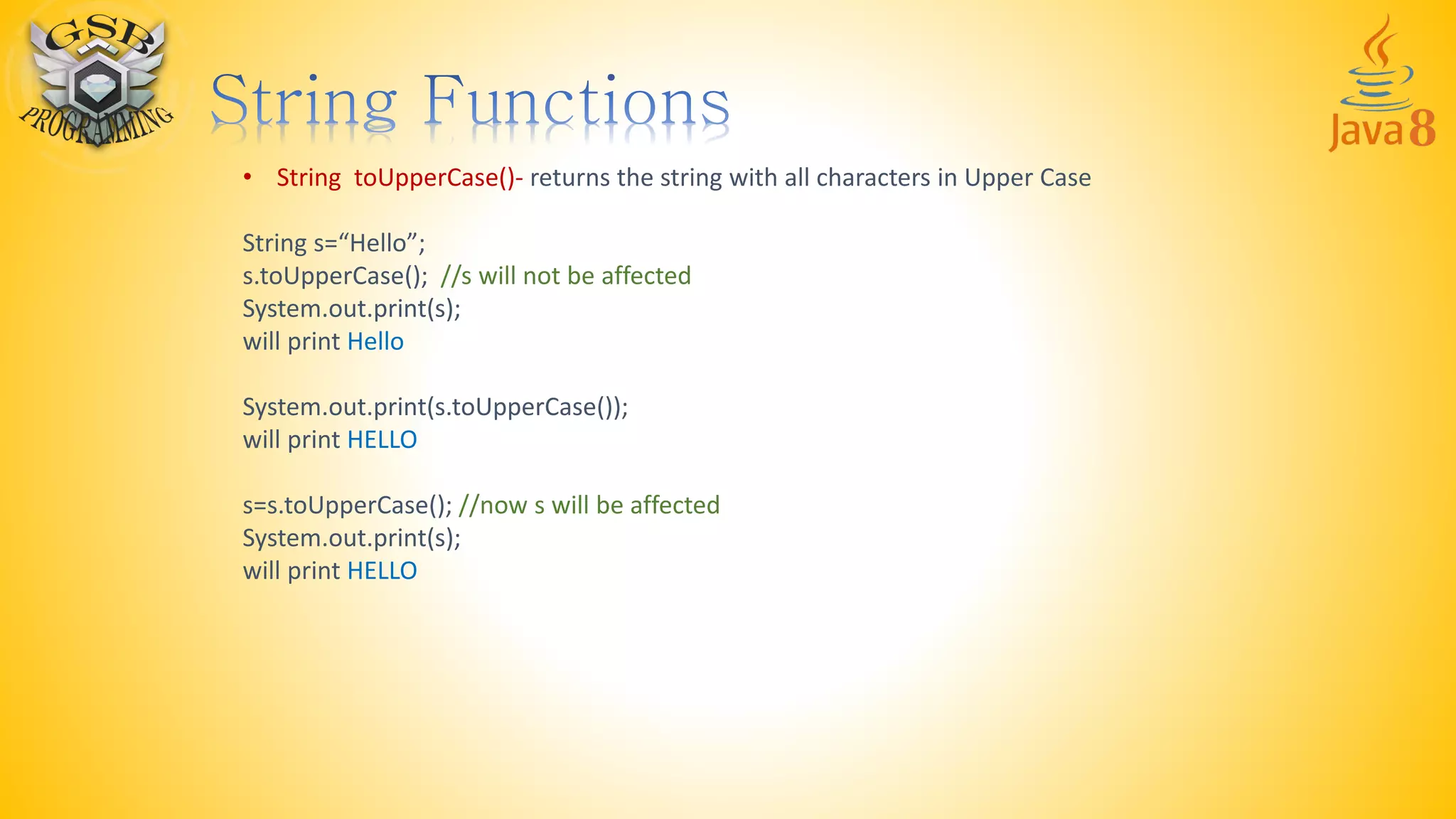
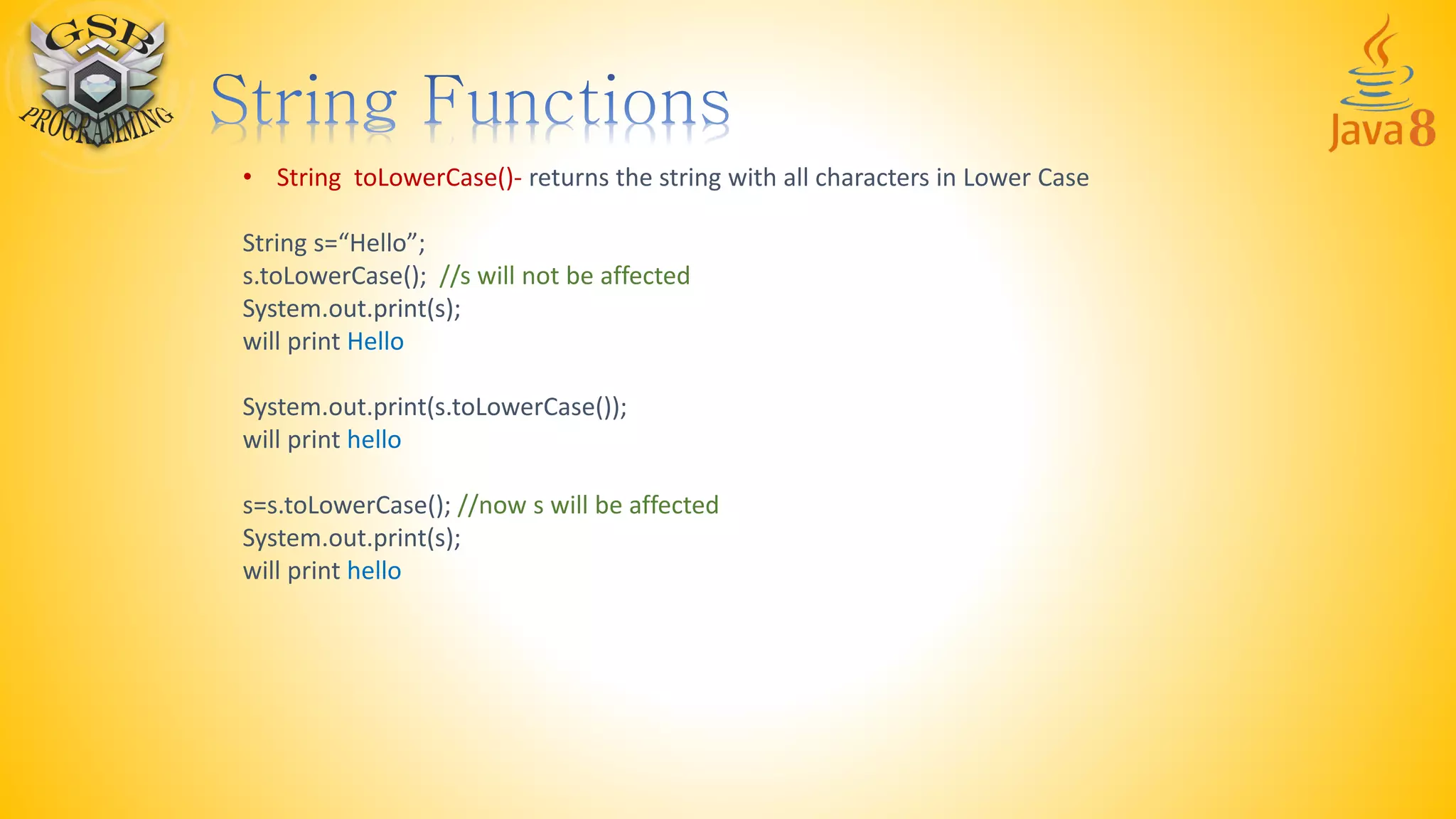
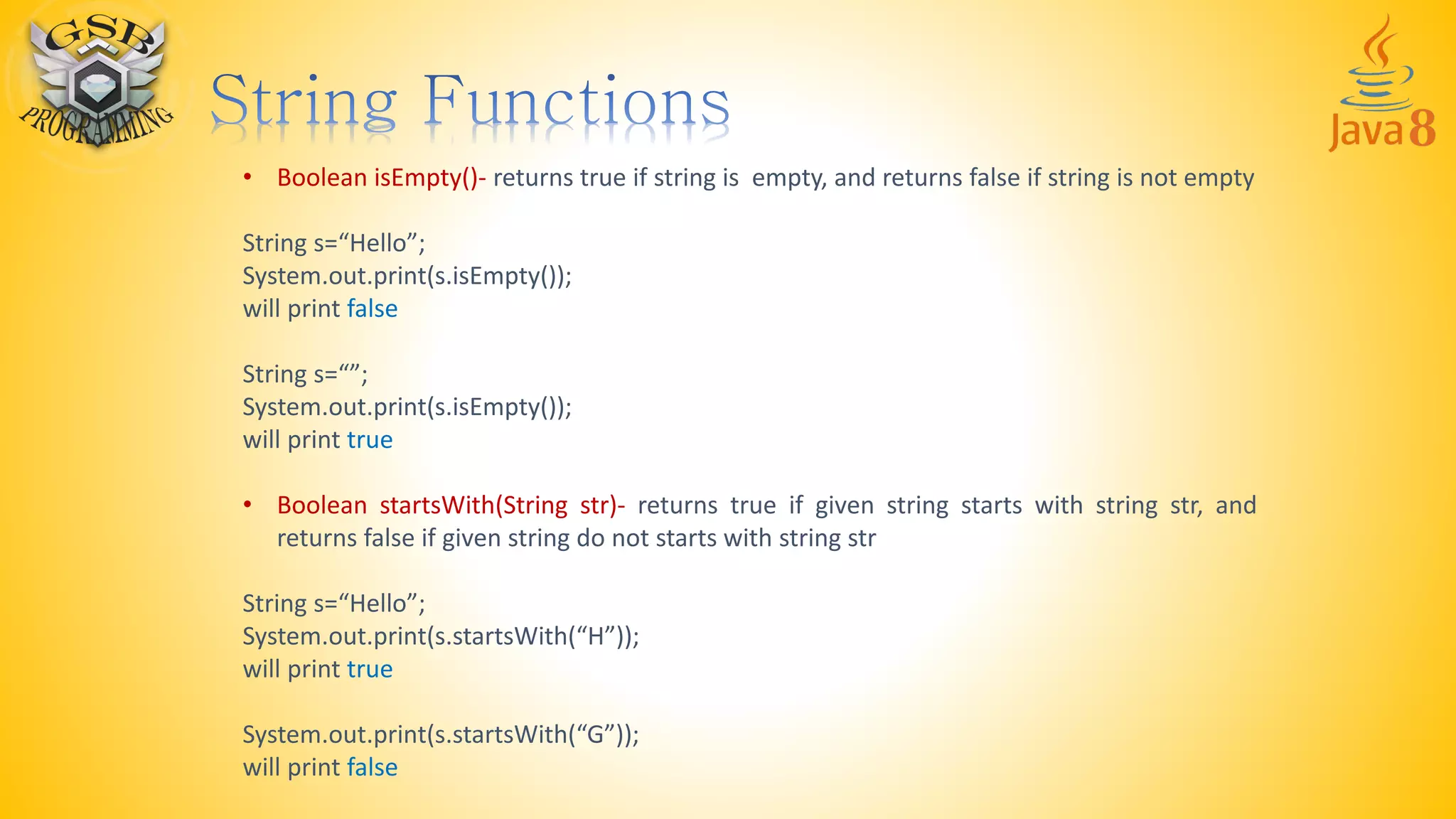
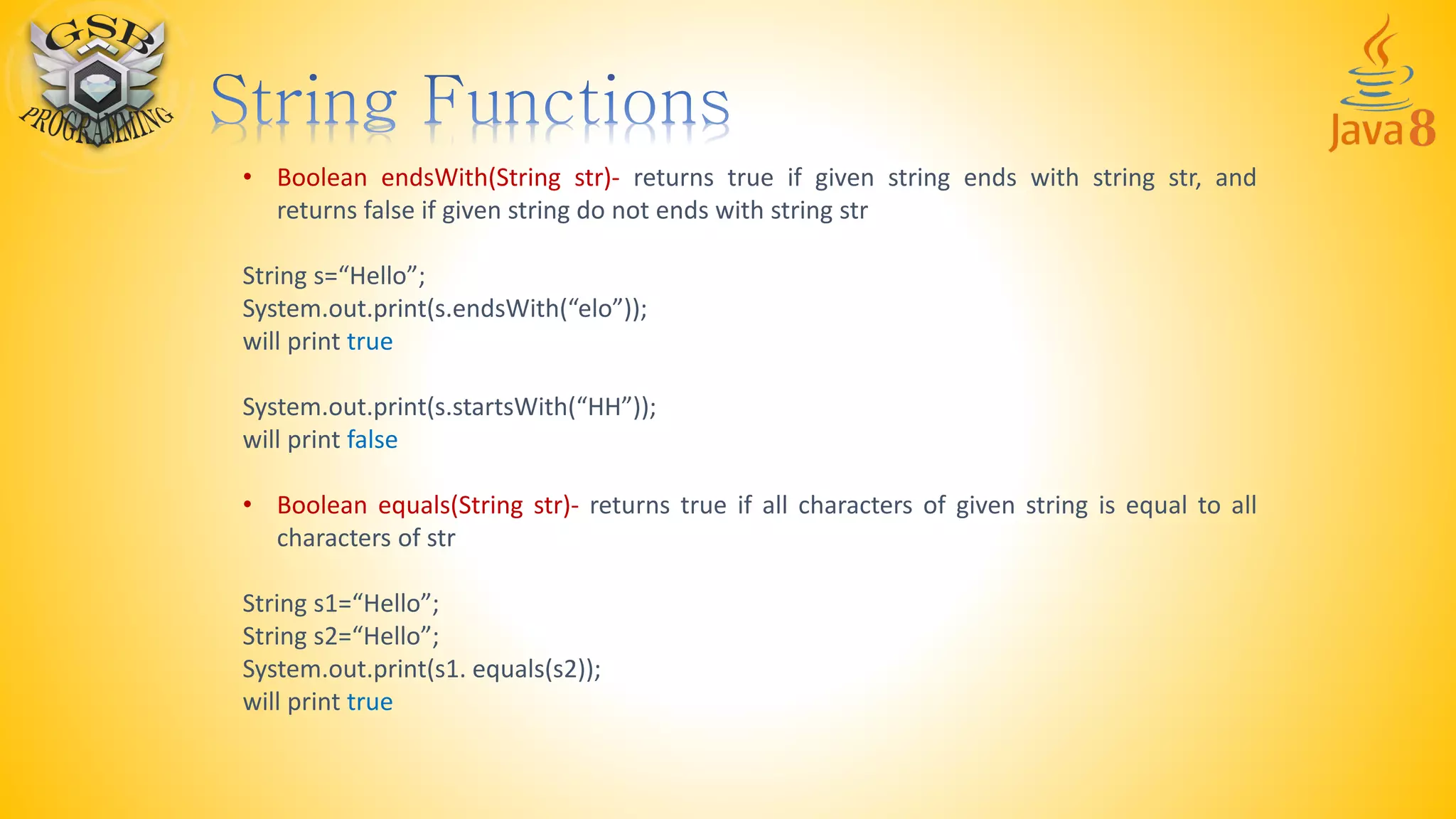
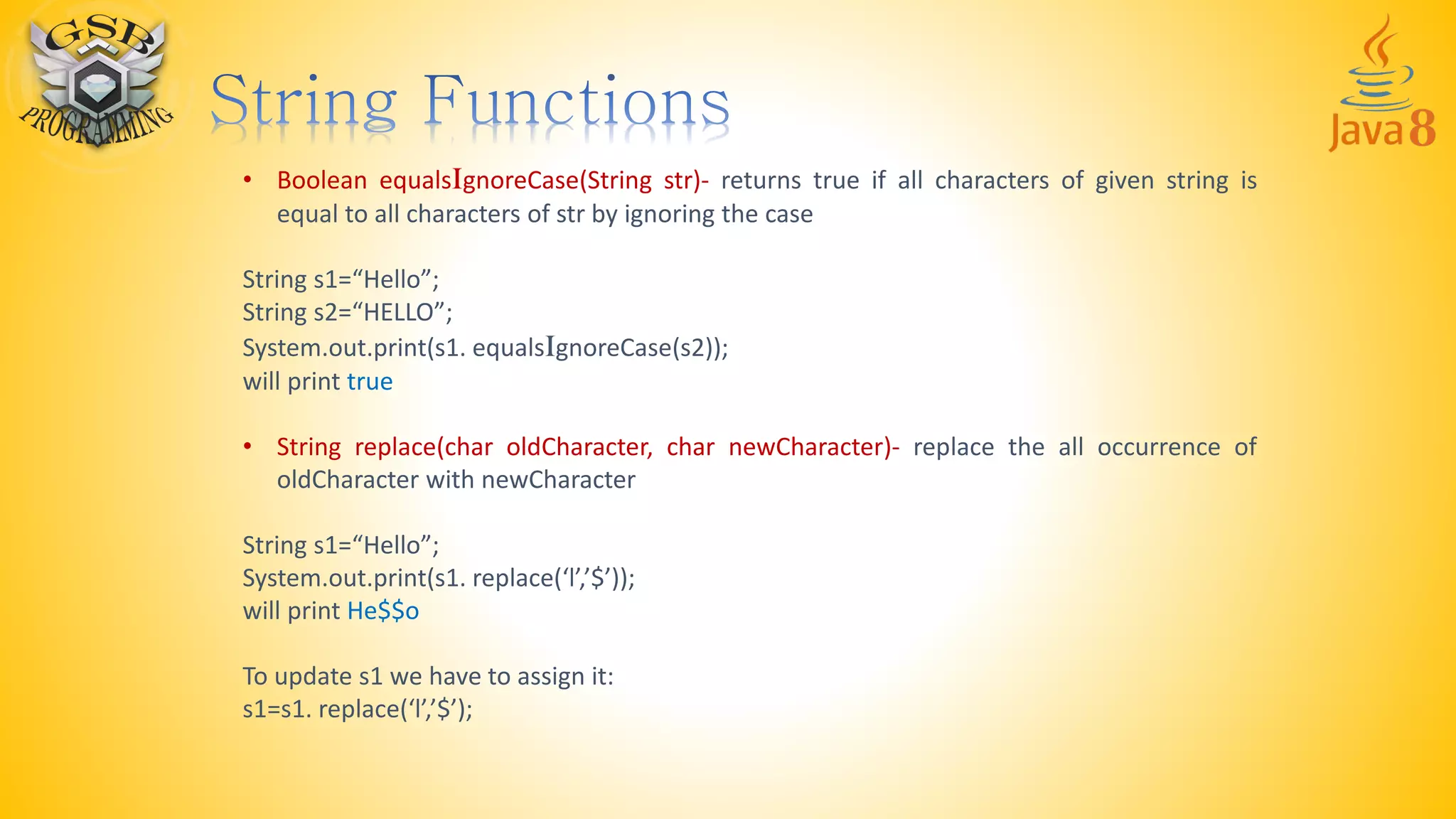
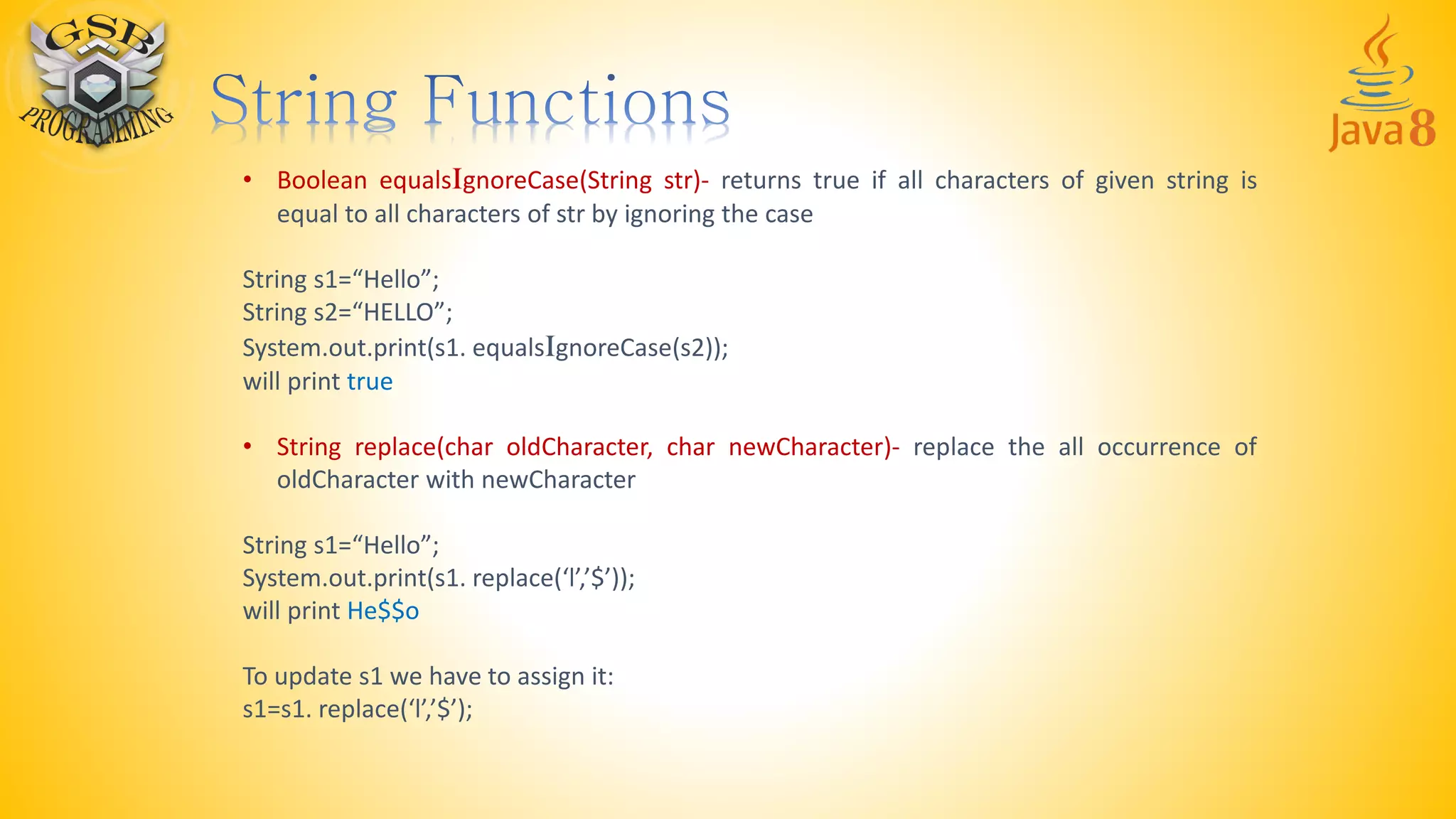
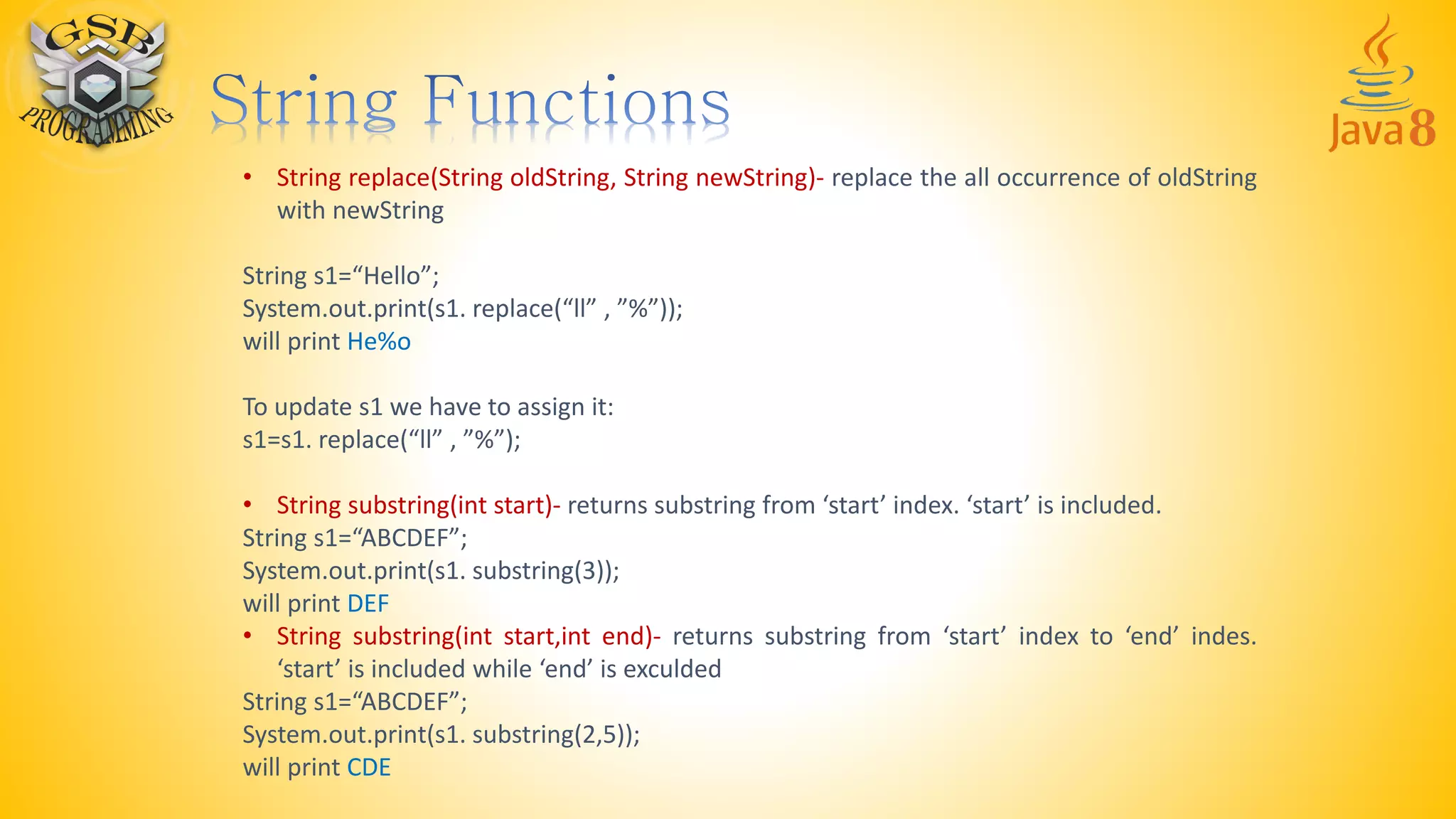
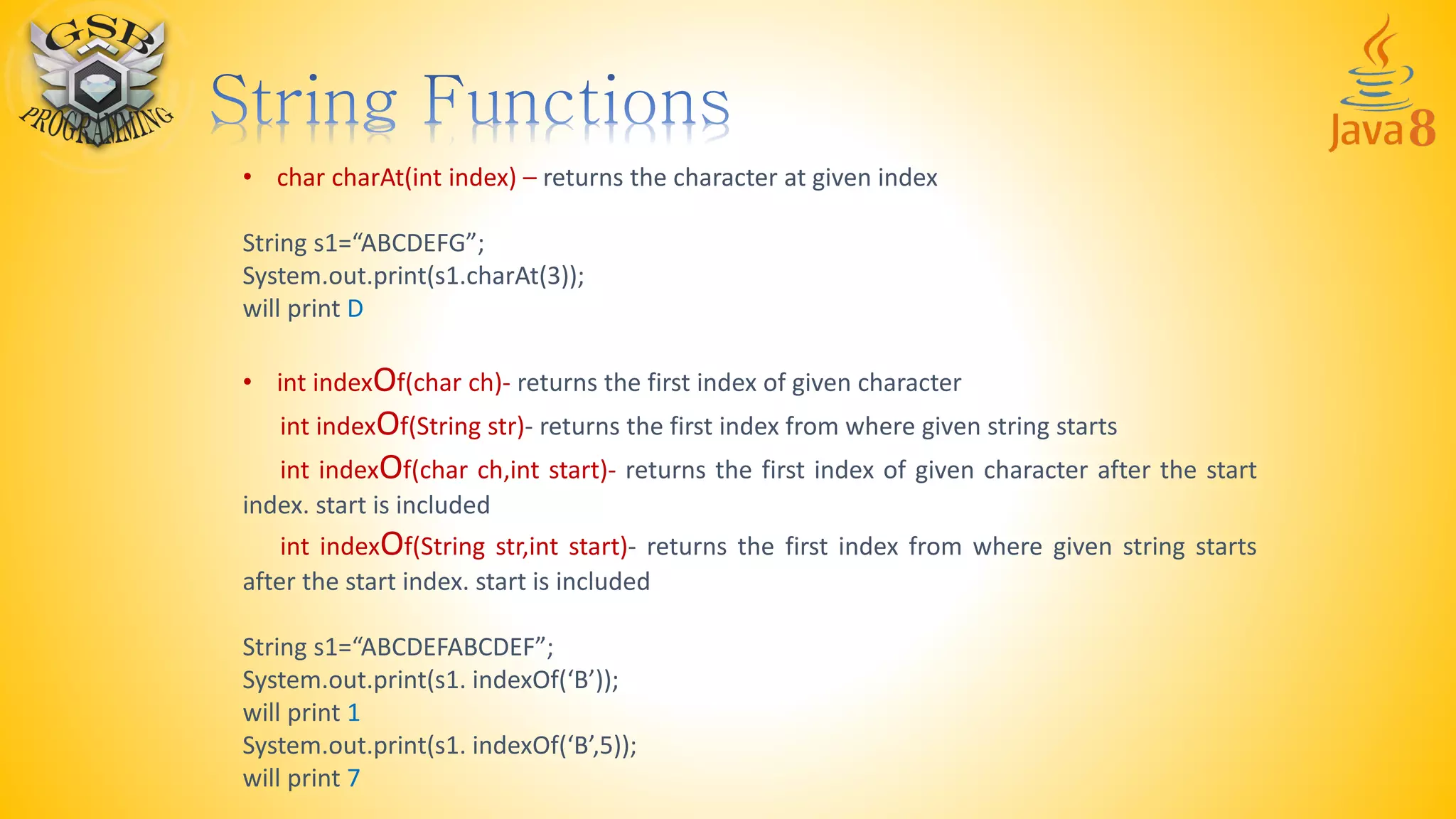
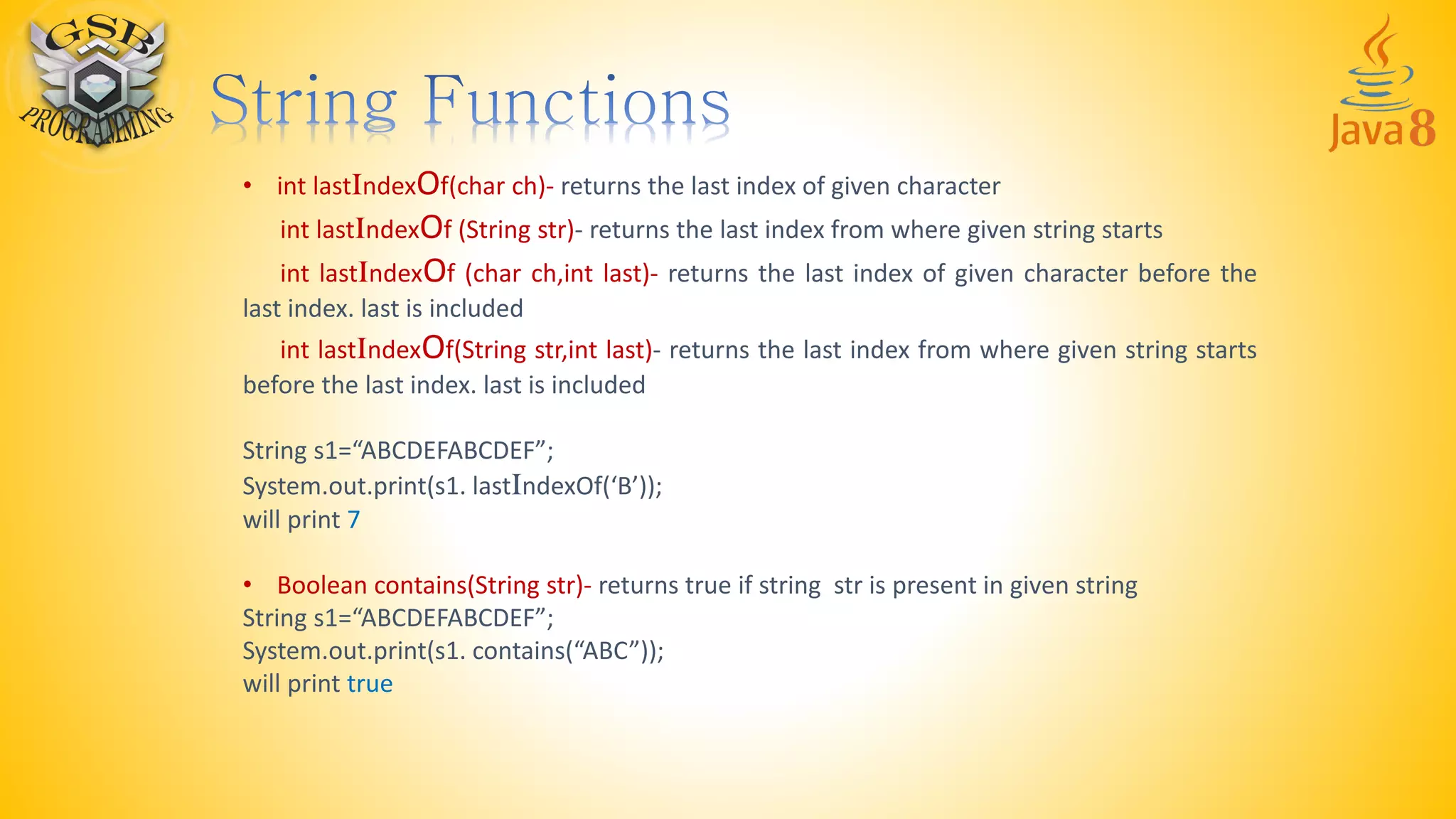
![• int compareTo(String str)- compares the string str with given string
String s1=“ABC”;
String s2=“abc”;
System.out.print(s1.compareTo(s2));
will print -32
• int compareToIgnoreCase(String str)- compares the string str with given string by
ignoring the case
String s1=“ABC”;
String s2=“abc”;
System.out.print(s1.compareToIgnoreCase(s2));
will print 0
• char[] toCharArray()- converts the string to array of characters
String s1=“ABC”;
char ch[]=s1.toCharArray();
System.out.print(ch[2]);
will print C](https://image.slidesharecdn.com/javappt6-150610165627-lva1-app6891/75/Learn-Java-Part-6-13-2048.jpg)
![• byte[] toByteArray()- converts the string to array of bytes
String s1=“ABC”;
byte ch[]=s1.toByteArray();
System.out.print(ch[0]);
will print 65
• String[] split(String str)- splits the given string to string array. Splits after str
String s1=“Hello World”;
String ch[]=s1.split(“ “);
System.out.print(ch[0]);
will print Hello](https://image.slidesharecdn.com/javappt6-150610165627-lva1-app6891/75/Learn-Java-Part-6-14-2048.jpg)